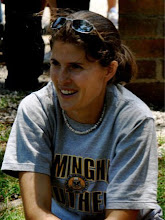It’s funny… I kind of expected that, after going to Cajamarca a few weeks ago, I’d have a pretty normal life here in Trujillo for a month, return to Cajamarca for the medical campaign the week of July 4th, and then finish out my time in Trujillo. Funny how things change.
The last few weeks have certainly not been calm, and I’m thankful to have a chance now to just sit still in the apartment (actually, it’s not even my apartment – staying with another nurse from the mission since the other interns left). But I’ve spent the better part of the past three weeks with one of our patients in and out of the hospital. He’s an 82-year-old man named don José, and we’ve been trying to get him an endoscopic surgery to remove nasal and sinus polyps since December. So, after lots of appointments, delays, and endless lines and paperwork relating to his government insurance (which, in spite of everything, thankfully covers just about everything), he finally had that surgery about two weeks ago. After a night in the hospital, he went home…which is actually a room in the church, since he has extremely limited resources, no family, and a few months ago could no longer live with the family he’d been with.
 Patients waiting to make an appointment with the government insurance.
Patients waiting to make an appointment with the government insurance.
Pretty crazy there for awhile. But I learned a lot, saw a lot, thought a lot, and got to know (at least by recognition) several people who worked there. Of course there are all types, but the majority – at least on his floor – were very good to us. And when he began to recover appetite and strength enough to be more talkative, it was really cool to get to know don José better. This little man – who was born in Cajamarca, only went to school through 3rd grade, has educated himself through enviable curiosity and reading, lived in Lima during his young adult years, was in the army for two years, ran the 100 and 400 m, likes soccer and basketball, was in love once better never got married, had everything stolen from him 40 years ago, moved to Trujillo, grew old without family, sells candies in the big Hermalinda market, and became a member of the Wichanzao church a month ago – has been through a lot. And, despite the nature of the circumstances, it was cool to get to hear some of it.

Thankfully, don José went home Thursday. He seems so much better, and we’re praying that he keeps recovering his strength and can return to the rhythm he had before. But even so, the truth is that he’s getting older and living alone in the church probably isn’t a viable long-term solution. I was thankful to get to care for him over the last few weeks, but there’s always a little doubt of “How much is okay?” Because the truth is, I’m leaving in a month, and the economic and family situations of many of the church members don’t give them much leeway to dedicate the care he needs. But, I also think that I/we haven’t done more for him than we would for an elderly family member, and I don’t think he should be denied the same attention just for being poor and without a family. But the next decision will be how to best care for him in the future. I probably won’t be part of that decision, but I’m praying for wisdom for those that are and that God will open up the right options.

